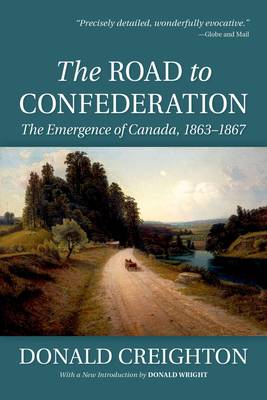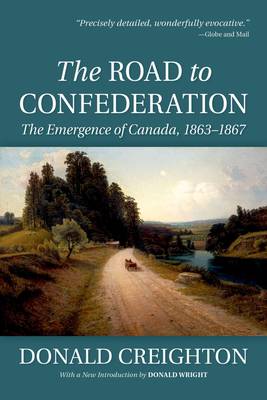
- Retrait gratuit dans votre magasin Club
- 7.000.000 titres dans notre catalogue
- Payer en toute sécurité
- Toujours un magasin près de chez vous
- Retrait gratuit dans votre magasin Club
- 7.000.000 titres dans notre catalogue
- Payer en toute sécurité
- Toujours un magasin près de chez vous
The Road to Confederation
The Emergence of Canada, 1863-1867
Donald Creighton, Donald Wright
Livre broché | Anglais
18,45 €
+ 36 points
Description
Donald Creighton was for many years one of Canada's foremost historians, a firm believer that history was closer to art than it was to science. Marked by beautiful, carefully crafted prose, The Road to Confederation reflects a style that perhaps no contemporary historian would dare: romantic, suspenseful, fearlessly narrative, and full of unapologetic opinions. If not politically correct and sanitized, it is a fascinating exploration of the personalities, the political logjams, even the debt problems that marked the period leading to Confederation. The book was also, as Donald Wright's excellent introduction argues, haunted by doubt. Not only had Canada failed to live up to Creighton's vision, Creighton himself was writing from the perspective of a rapidly changing country. Quebec was moving towards a liberal, secular, and nationalist identity; English Canada was embracing bilingualism and diversity; debates about nuclear weapons were raging; and living next to the United States was becoming increasingly uneasy. The road was becoming ever less straightforward. In many respects, The Road to Confederation reveals as much about the 1960s as it does the 1860s. Can echoes of Creighton's vision be seen even now, as Canada reinserts "Royal" into its military's name and remains entranced by William and Kate, the Duke and Duchess of Cambridge, and the future of the Royal Family?
Spécifications
Parties prenantes
- Auteur(s) :
- Editeur:
Contenu
- Nombre de pages :
- 528
- Langue:
- Anglais
Caractéristiques
- EAN:
- 9780195449211
- Date de parution :
- 15-09-12
- Format:
- Livre broché
- Format numérique:
- Trade paperback (VS)
- Dimensions :
- 155 mm x 231 mm
- Poids :
- 453 g







